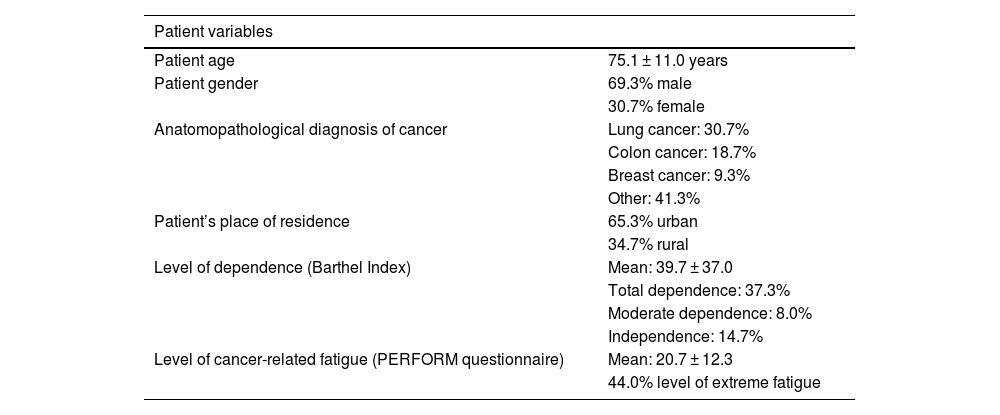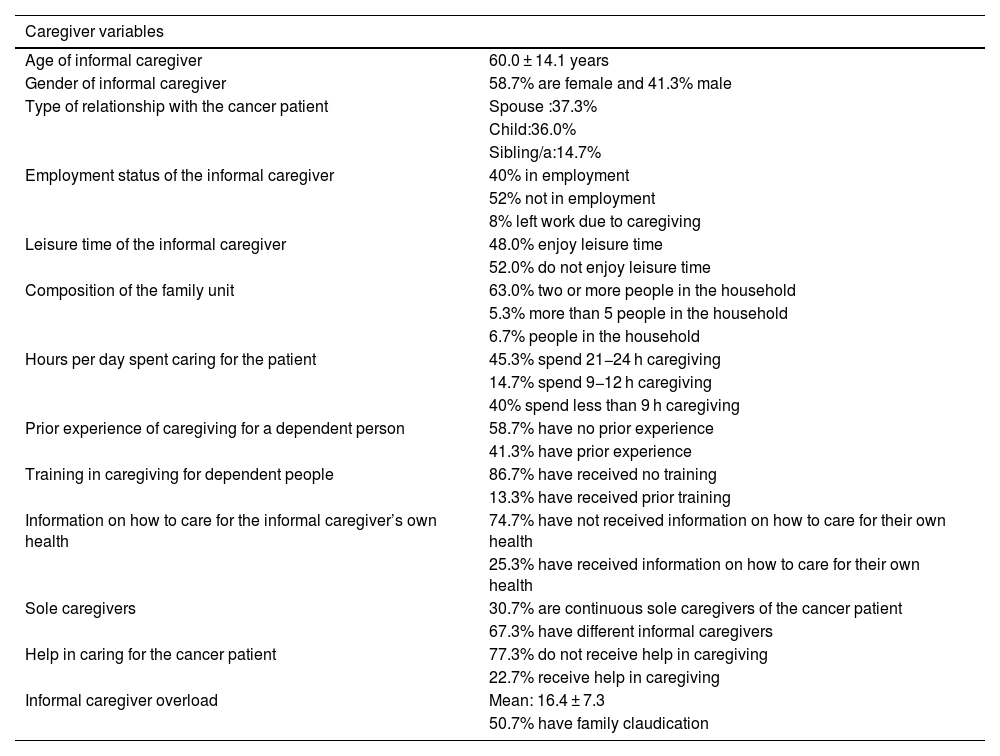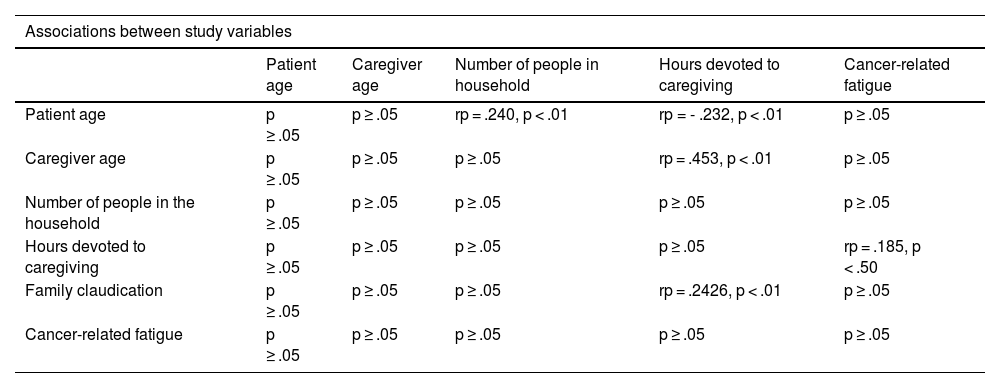The incidence of oncology patients is increasing due to the ageing of the population and advances in research leading to early diagnoses. This has resulted in an increase in the care required for patients at all stages of their illness. To describe the current situation of the overload of informal caregivers of cancer patients with tumour asthenia belonging to the Medical Oncology Service of the University Health Care Complex of Salamanca and the Palliative Care Unit of the Hospital de los Montalvos, we employed the following.
MethodsThis is a cross-sectional descriptive observational study conducted at the Complejo Asistencial Universitario de Salamanca and the Palliative Care Unit of the Hospital de los Montalvos from February to May 2023. The study involved 75 informal caregivers of oncology patients with tumour asthenia. Data was collected through interviews, which included sociodemographic information and measurement scales. The study employed the Barthel Scale, PERFORM questionnaire, and Reduced Zarit Caregiver Overload Scale to assess the informal caregivers' ability to care for cancer patients with tumour asthenia.
ResultsOf the caregivers, 58.7% were female, and the mean age was 60.0 years (±14.10). Over half (50.7%) of the caregivers experienced high levels of overload, making it impossible to care for the patient. Among patients with tumour asthenia, 37.3% were totally dependent, and 8.0% were moderately dependent. Of these caregivers, 58.7% had no prior caregiving experience, 80.7% had no training, and 77.3% never received help in caring for the patient.
ConclusionsIn the Medical Oncology service of the Complejo Asistencial Universitario de Salamanca (CAUSA) and the Palliative Care Unit of the Hospital de los Montalvos, over one third of caregivers of oncology patients with tumour asthenia experienced caregiver overload. Variables such as the patient's age, the caregiver's age, the number of care hours, and the willingness to seek help can influence the perception of overload. This can worsen the effective care of the patient. It is important to consider these factors when providing care.
En la actualidad, los cuidados de pacientes oncológicos, en cualquiera de las fases de su enfermedad, se encuentran en aumento debido a la incidencia de la propia enfermedad causada por el creciente aumento del envejecimiento de la población y por el aumento de nuevos diagnósticos oncológicos tempranos debido a los avances en investigación. Es por ello, por lo que queremos describir la situación actual de la sobrecarga de los cuidadores informales de pacientes oncológicos con astenia tumoral pertenecientes al servicio de Oncología Médica del Complejo Asistencial Universitario de Salamanca y la Unidad de Cuidados Paliativos del Hospital de los Montalvos.
MétodoEstudio observacional de tipo descriptivo transversal realizado en el Complejo Asistencial Universitario de Salamanca y la Unidad de Cuidados Paliativos del Hospital de los Montalvos desde el mes de febrero hasta el mes de mayo de 2023, con un total de 75 cuidadores informales de pacientes oncológicos con astenia tumoral. La recopilación de los datos se realizó mediante una entrevista; dónde se recogieron datos sociodemográficos y las siguientes escalas de medida: Escala Barthel, cuestionario PERFORM y Escala de Sobrecarga del cuidador de Zarit reducida.
ResultadosEl 58,7% de los cuidadores fueron mujeres siendo la media de edad de todos los cuidadores informales de 60.0 años (±14.10). Un 50,7% de los cuidadores informales experimentaron altos niveles de sobrecarga imposibilitando el cuidado del paciente oncológico con astenia tumoral causando claudicación familiar. El 37,3% de los pacientes con astenia tumoral presentaron dependencia total, el 8,0% dependencia moderada. El 58,7% de los cuidadores no tenían experiencia en el cuidado, el 80,7% no tenían formación y el 77,3% nunca recibieron ayuda en el cuidado del paciente.
ConclusionesLa sobrecarga del cuidador en pacientes oncológicos con astenia tumoral estuvo presente en más de un tercio de los cuidadores de pacientes del servicio de Oncología Médica del Complejo Asistencial Universitario de Salamanca (CAUSA) y la Unidad de Cuidados Paliativos del Hospital de los Montalvos. Existen variables que influyen en la percepción de dicha sobrecarga como son la edad del paciente, la edad del cuidador principal, el número de horas de cuidado o la predisposición a pedir ayuda agravándose más si cabe dicha sobrecarga y por ende el cuidado efectivo del paciente enfermo.
Artículo
Comprando el artículo el PDF del mismo podrá ser descargado
Precio 19,34 €
Comprar ahora










